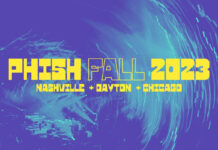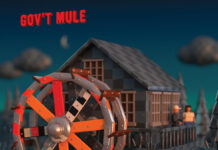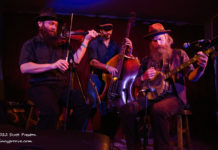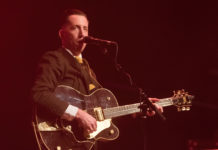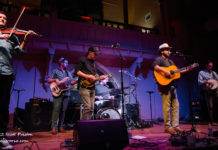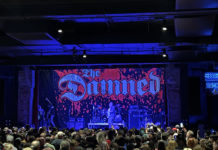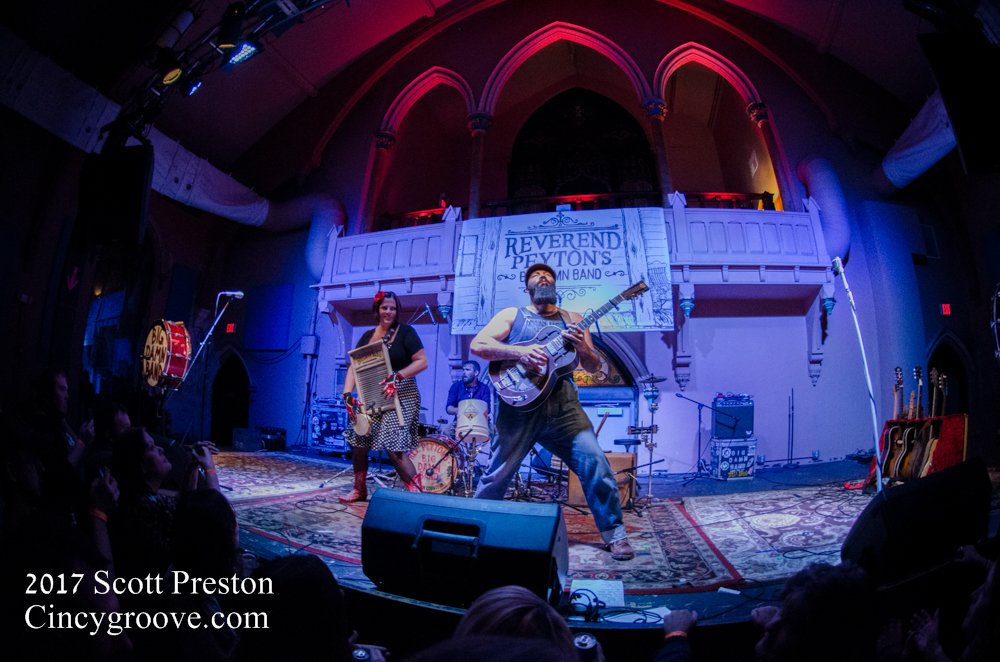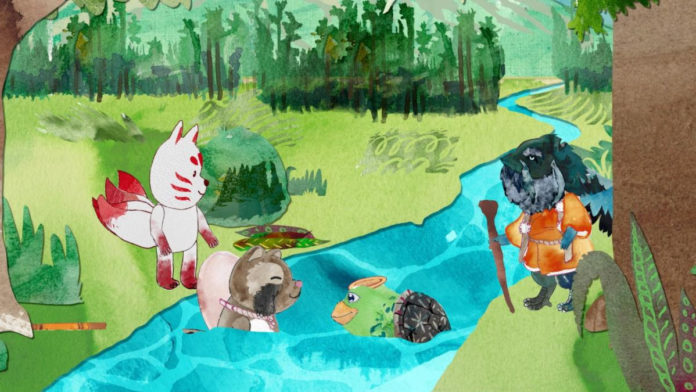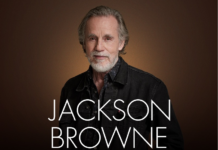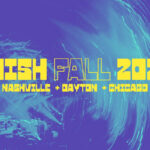Kishi Bashi today shared a delightful new video for his song “Wait for Springtime,” directed by himself, illustrated by Phil Jasen, and animated by Geoff Hoskinson. The clip vibrantly brings to life classic Japanese folklore and Ukiyo-e influenced puppetry (created by the team of Jasen, Alan Guerra, and Klée Schell) through a shared adventure of various adorable woodland creatures. “Wait for Springtime” is off the acclaimed new Emigrant EP, released digitally on April 2nd and on 5/21 on vinyl via Joyful Noise Recordings.
“The tanuki (raccoon dog) and kappa (the river yokai) are a big part of Japanese folklore, and they’ve been in my consciousness alongside big foot, mermaids, and fairies,” explains Kishi Bashi. “Knowing that spring is coming—and all that it symbolizes, like rebirth and renewal—gives people the strength to endure a harsh winter. In this video, these creatures eventually find a new home after surviving a genocide of their monster species. Phil Jasen, the artist, is a wonderful puppeteer, and the shadow puppet story is based on the Japanese legend of ‘Tamamo-no-Mae,’ in which a shapeshifting fox seduced several kings throughout Asia, only to be ultimately vanquished by a Japanese samurai. Like in Princess Mononoke (and many Hayao Miyazaki films), magical creatures are constantly hunted until they are pacified and reborn into mythology and legend.”
Jasen adds, “The visuals draw inspiration from the 17th-19th century woodblock prints and paintings of Japan, but also contemporary anime and manga. The main cast of yokai are paper puppets set in a hybrid environment composed of watercolor illustrations and digital art. In the woods they encounter a Hyottoko inspired traveling puppeteer who performs with shadow puppets which are uncommon in Japanese history- but here are imagined as Ukiyo-e styled figures.
Emigrant—a new six-song collection containing four original compositions and two covers (Regina Spektor’s “Laughing With” & Dolly Parton’s “Early Morning Breeze”)—was arranged and recorded over the last year and serves as a time capsule of 2020 as it meditates on the anxieties of the COVID-19 pandemic, the comforts of nature, the pains of resource-fueled conflicts, and the resiliency that emerges from struggle. The collection has earned Kishi Bashi great press via The AV Club, NPR Music’s All Songs Considered, No Depression, Bluegrass Situation, and more, including an invitation to participate on NPR’s Morning Edition’s Song Project series, where he debuted his new, poignant and musically grand original, “For Every Voice That Never Sang.”
Over the last several years, the critically-acclaimed composer and adventurous multi-instrumentalist Ishibashi has traveled frequently to Montana and Wyoming to work on Omoiyari, an upcoming “song film” about Japanese internment during WWII that shares the name and conceptual focus of his previous record. It has been an emotional and creatively potent experience for Ishibashi to spend time in the American West—a place known for its at times brutal history and harsh climate—speaking with internment camp incarcerees and descendents. Considering his own bicultural identity as the child of Japanese immigrants has come to influence Kishi Bashi’s approach to songwriting.
The lush, bluegrass-inspired songs on Emigrant emerged out of a socially-distanced 2020 road trip to this now-familiar region. Tours cancelled, Kishi Bashi found himself with an abundance of free time, and mapped out a route for himself and his daughter that would take them from their home in Athens, Georgia, all the way to the west coast. In Montana, they stayed in a cabin in the EP’s namesake town: Emigrant; there, 30 minutes from Yellowstone National Park and close to a historic goldmine, Ishibashi was privy to a near-perfect summer. But he also considered the long, cold winters that had tested many eras of inhabitants of the region, sensing a deep fragility of human life. The Emigrant EP reflects on issues including historical tragedies (“Town Of Pray”) and current day climate change impacts (“Cascades”), and also see Ishibashi newly embracing the playing of his trademark violin in a fiddle style, empowered by his knowledge of the blisteringly skilled Japanese bluegrass scene of the ‘60s and ‘70s—which he learned of while studying at the Berklee College of Music. The songs were tracked in Athens, GA live to 2-track tape and recorded with various local friends: frequent collaborators banjoist Mike Savino (aka Tall Tall Trees) and cellist Emily Hope Price, as well as upright bassist Andrea DeMarcus and guitarist Dave Kirslis (of the Athens duo Cicada Rhythm).

